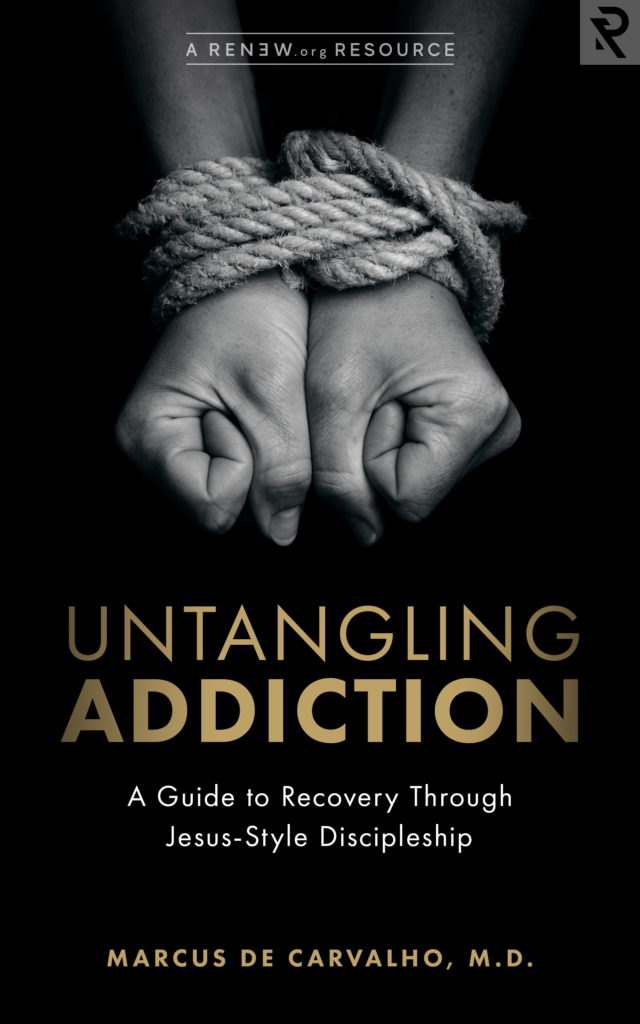
Q: Original Sin or Ancestral Sin?
*Editor’s Note: Christianity teaches that we humans inherited some very dark things from the first sin of our original ancestors. But what exactly is it that we inherited from them? Are we being held guilty for a sin we didn’t commit? I reached out to Dr. Michael Strickland to help us understand better what we received from the original fall of humans.
A nearly universal assumption by us human beings is that we can do right and wrong things, good and evil things. This article isn’t about the basis for determining “right” or “wrong,” or “good” and “evil,” but about the human predicament we all find ourselves in: Why do we sin?
The Christian Scriptures offer a partial explanation for our tendency to do the wrong thing, to act selfishly, to hurt, to betray, to lie–and just about every other bad thing you can imagine. The Apostle Paul deals with the issue in chapter 5 of his letter to the Roman church.
The doctrine (or teaching) Paul offers is often referred to as “original sin” or “ancestral sin.”
I prefer the latter term, but they both hit at the first culprit in our plight: our forefather, Adam, sinned, and in so doing introduced all manner of destruction into what was paradise.
Paul assumes that his readers believe that the biblical characters Adam and Eve really existed and that they served as the progenators of the entire human race. Not only did our ancestor Adam pass along various Homo Sapien traits; he also bequeathed us with a sinful nature—meaning we sin because our very natures draw us toward evil.
This is the point where I should warn you that Christians have been very divided over what my previous statement actually means. Specifically, they argue over how responsible Adam is for our sinfulness.
What does Paul say?
In Romans 5, Paul has already emphasized the fact that Christ died for sinful people (not merely good or righteous people) to reconcile us to God. This point leads him to make a contrast between the despair brought on by Adam, the father of the human race, and the hope offered by Jesus, the “new Adam.”
First, Paul identifies the first human sin, committed by Adam, which unleashed death not only on Adam, but on all his descendants.
“Therefore, just as sin came into the world through one man, and death through sin, and so death spread to all men because all sinned” (Romans 5:12).
Here we reach our first difficulty. Does Paul mean that all humans are impacted by Adam’s sin in some way? Yes, but how?
The arguments in the Western church (starting with Augustine and continuing in later Protestant vs Roman Catholic debates) have centered on how descendants can be held responsible for an ancestor’s sin.
Doesn’t that seem unfair?
Augustine called Adam’s first sin the “original sin” that we all inherit. Among several options, Western theologians have tended to argue for “federal headship” (Adam, as our representative, sinned and stained us all) or “seminal headship” (the entire human race was “in Adam’s seed”).
While, in my opinion, seminal headship has more biblical roots (cf. Hebrews 7:9-10), the Western arguments over headship still lead to the obvious problem of whether God can be just, by attributing Adam’s sin to his descendants. Let’s look at Romans 5 again.
“But the free gift is not like the trespass. For if many died through one man’s trespass, much more have the grace of God and the free gift by the grace of that one man Jesus Christ abounded for many. And the free gift is not like the result of that one man’s sin. For the judgment following one trespass brought condemnation, but the free gift following many trespasses brought justification. For if, because of one man’s trespass, death reigned through that one man, much more will those who receive the abundance of grace and the free gift of righteousness reign in life through the one man Jesus Christ” (Romans 5:15-17).
Here Paul begins the contrast between Adam and Christ. Christ came to undo all of the problems that Adam introduced though his sin. The text is clear that there are consequences which all humans suffer because of Adam’s sin, the most prominent being death. We die because Adam sinned. Sin introduced mortality to the human race.
However, Western theologians have made great leaps from this text to bolster some suspect doctrines.
While Augustine wasn’t the first Christian to speak of the sin of Adam being somehow transmitted to babies, he was the first to introduce an entire system of doctrines to justify infant baptism based on Romans 5.
For Augustine, not only did Adam’s sin bring us death, it also bequeathed us with Adam’s guilt. To him, we are totally depraved and thus incapable of doing any good on our own.
Augustine’s teaching makes sense in reaction to one of the great heresies of the early church, Pelagianism, named after its founder, Pelagius. Pelagius had a high view of human nature, and he taught that humans could be sinless by their own efforts. Augustine rightly rejected Pelagius’s hard line, but also introduced problems which the Western church has been dealing with ever since.
In its rush to condemn Pelagius, Western Christians were in danger of removing all human choice from the process of salvation.
But in Romans 5, is Paul trying to de-emphasize the human role in salvation? Of course not. Instead, he is pointing to the hope we all have in Jesus to remedy the death and destruction that the Fall of Adam introduced.
A better way to reconcile Paul’s teaching in Romans 5 with the gospel allegiance he clearly teaches in other places (“the obedience of faith” in Romans 1:5 and 16:26; “obedient from the heart” in Romans 6:17; “obey the gospel” in 2 Thessalonians 1:8) is to understand him to say that all humans inherit a sinful nature from Adam, but not Adam’s guilt.
We are thus responsible for our own sins, but our tendency to sin can be traced back to our forefather in the human race, Adam.
While the Western church has twisted itself in knots over how much to allow human free will, if at all, to enter into the discussion of human sinfulness, the Greek speaking churches in the East have generally avoided this debate for two millennia. For them, the standard teaching is that Adam introduced death for us all, and from him we inherited a sinful nature without inheriting his guilt.
For example, Cyril of Alexandria, an important Christian leader in Egypt in the AD 400s and one of the greatest Christian thinkers in history, explained:
“How did many become sinners because of Adam? . . . How could we, who were not yet born, all be condemned with him, even though God said, ‘Neither the fathers shall be put to death because of their children, nor the children because of their fathers, but the soul which sins shall be put to death’? (cf. Deut. 24:18). . . . We became sinners through Adam’s disobedience in such manner as this: he was created for incorruptibility and life, and the manner of existence he had in the garden of delight was proper to holiness. His whole mind was continually beholding God; his body was tranquil and calm with all base pleasures being still. For there was no tumult of alien disturbances in it. But because he fell under sin and slipped into corruptibility, pleasures and filthiness assaulted the nature of the flesh, and in our members was unveiled a savage law. Our nature, then, became diseased by sin through the disobedience of one, that is, of Adam. Thus, all were made sinners, not by being co-transgressors with Adam,… but by being of his nature and falling under the law of sin.”[1]
Thus, I prefer to speak of “ancestral sin” instead of “original sin” and “ancestral guilt.”
I follow a long line of sinners throughout my ancestry, a fact that is all too plain. No human has to be taught to sin. We are born with the propensity, or proclivity, to sin. An older term Christians used to describe this tendency to sin was “concupiscence.”
Alexander Campbell wrote nearly two hundred years ago,
“In Adam, all have sinned; therefore ‘in Adam all die.’ Your nature, gentle reader, not your person, was in Adam when he put forth his hand to break the precept of Jehovah. You did not personally sin in that act; but your nature then in the person of your father, sinned against the Author of your existence. In the just judgment, therefore, of your heavenly Father, your nature sinned in Adam, and with him it is right, that all human beings should be born mortal, and that death should lord it over the whole race.”[2]
For someone who is considering becoming a disciple of Jesus, or who has just begun their walk, it is important to understand what is at stake here. You were born with the strong desire to sin because of the human sinful nature. In this way, Adam condemned you.
This was not your fault, and God does not condemn you for having such urges.
Babies are not guilty of sin, whether their own or Adam’s. Instead, God knows what we all learn about ourselves eventually—we all choose to sin after we have learned the difference between right and wrong. God does hold us accountable for that sin.
The good news is that God has provided the cure for this problem, which is the point Paul makes in Romans 5.
Yes, we inherited a sinful nature and mortality from Adam, but the good news is that we can inherit grace and righteousness from Christ.
As Jack Cottrell explains, “To sum it up, the individual’s spiritual odyssey begins with a theoretical original sin, which is canceled by Christ’s original grace, which is (at the age of accountability) canceled by personal sin, which may then be covered by personal grace.”
[1] Commentary on Romans, 74, 788-789, as translated by Archimandrite Vassilios Papavassiliou, as quoted in “Original sin: Orthodox doctrine or heresy?”
[2] Alexander Campbell, The Christian System, Third Edition, 1840, 28.









